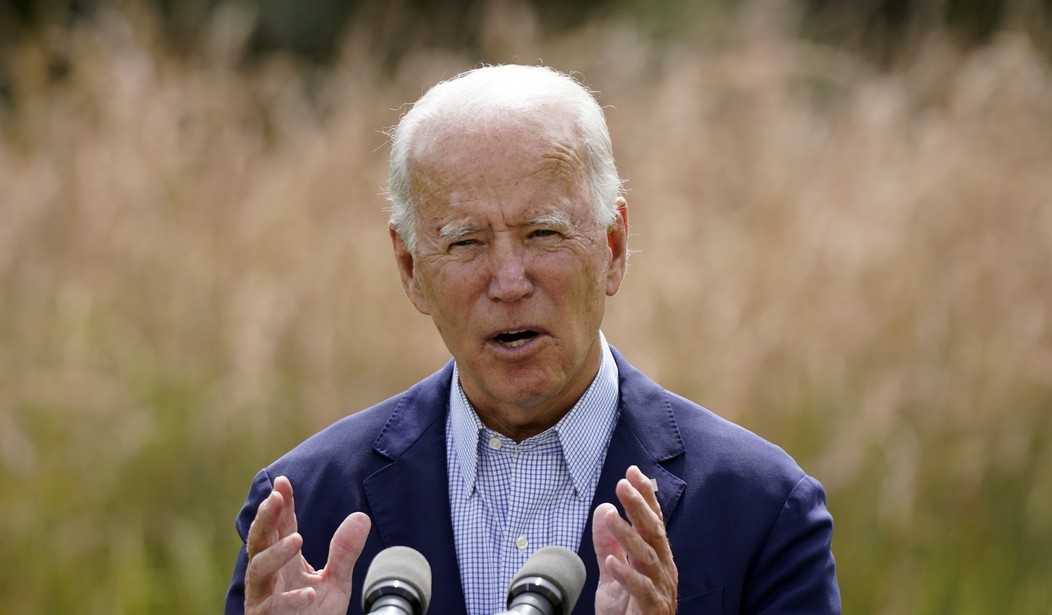Much to the chagrin of radical environmentalists and legacy media, President Donald Trump’s Department of Interior (DOI) largely succeeded in promoting true conservation policies.
Since 2017, the department gave sportsmen and women— the largest drivers of conservation funding— a bigger seat at the table, bolstered relations with landowners out West and strengthened the multiple-use, sustained yield philosophy guiding public lands management.
Post-Trump, DOI could morph into a preservationist, climate-focused agency largely mirroring the House Natural Resources Committee under Chairman Raul Grijalva (D-AZ). This should concern the millions of true conservationists across America.
Who will succeed Secretary David Bernhardt come January, and how will they transform DOI?
Here are four possible contenders.
U.S. Senator Tom Udall (D-NM)
A top contender for the post, retiring U.S. Senator Tom Udall (D-NM) is being floated as Joe Biden’s likely Interior pick. The New Mexico senator’s father, Stewart Udall, also held this post from 1961-69.
If selected and confirmed, he intends to move the agency in a radical direction focusing on climate issues and renewable energy. For example, he pledges no drilling in ANWR, supports the Green New Deal, and endorses Senate Resolution 372 in support of the “30 by 30” plan that would lead to more hunting and fishing closures.
According to the Santa Fe New Mexican, Udall is eyeing the job:
Recommended
While Udall did not directly address whether he had an interest in becoming interior secretary, he noted the extensive work he’s done on public lands and natural resources in the Senate and said that was “the area that I have the real passion about.”
“It’s what I think has resonated with New Mexicans and it’s the work I really like to do,” Udall said in an interview. “I think I have something to offer there.”
Former Interior Deputy Secretary Michael L. Connor
Another possible contender emerging is former Obama Interior Deputy Secretary Michael L. Connor, who served from 2014 to 2017. He was confirmed by a 97-0 vote in the U.S. Senate. Prior to becoming the number two at DOI, he was commissioner of the Bureau of Reclamation from 2009 to 2014. He also worked for the agency during the Clinton administration.
Connor, a descendant of the Taos Pueblo tribe, currently works as a partner for WilmerHale focusing on “natural resources, energy development, environmental compliance and Native American law.” According to one report, his law firm represents oil and gas companies—a connection progressives are actively denouncing.
“It would be an honor to serve in the Biden-Harris Administration and carry out the important work necessary to address the country’s most pressing challenges,” Connor wrote in an email statement to New York Times.
Congresswoman Deb Haaland (D-NM)
Rep. Deb Haaland (D-NM), a self-described progressive, would be the first Native American woman to oversee the agency if nominated and confirmed. Democrats see her as a “historic” pick. And she’s getting elevated by the aforementioned Rep. Grijalva (D-AZ)—a vocal anti-hunting advocate.
Haaland is an original Green New Deal backer and is endorsed by the Sunrise Movement. She also supports restoring the size of the controversial Bears Ears National Monument in Utah, opposes Endangered Species Act reforms, and endorses the “30 by 30” plan via House Resolution 835.
If Republicans retain control of the Senate after January 5th, however, her confirmation is definitely dead-on-arrival.
U.S. Senator Martin Heinrich (D-NM)
A sportsman, Senator Martin Heinrich (D-NM) could appeal to hunters and anglers. Yet, he’s in lockstep with Biden in prioritizing “environmental justice” and climate issues.
Interestingly enough, Heinrich did vote to confirm both Trump Interior Secretaries: Ryan Zinke and David Bernhardt.
But he’s also is one of 14 co-sponsors of the Senate Green New Deal, a supporter of the carbon tax, and believes public lands shouldn’t prioritize ranching or timber interests much going forward:
The New Mexico lawmaker lamented that both Interior and the Forest Service continue to operate under "foundational laws" created to emphasize beef production, timber harvesting or ore extraction, arguing the modern economy "needs very different things."
"Given the desire of Americans for outdoor recreation, environmental justice, climate solutions, the preservation of biodiversity, clean water and rural economic development, we really need to reorientate the Department of the Interior and the U.S. Forest Service toward those objectives," he added. "The mission of public land management should really be focused on serving the American public and safeguarding the values that deliver all of those public benefits."
Conclusion
For true conservationists, the Biden era will be difficult to navigate. Hunters, anglers, ranchers, foresters, and other consumptive users of America’s wild lands must stay vigilant and fight back egregious attacks on their way of life should and when they arise.

























Join the conversation as a VIP Member